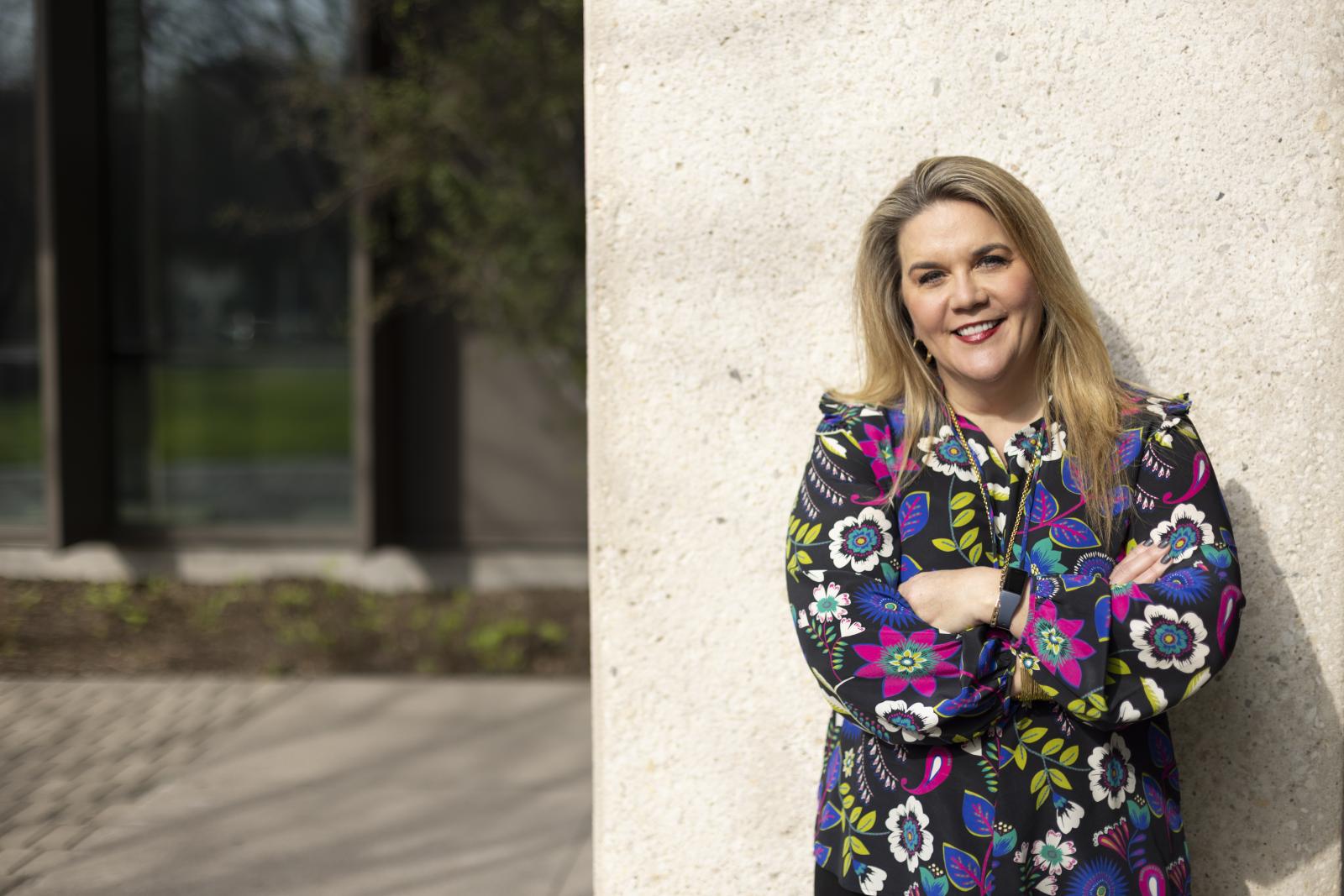Getting out the vote in Texas

Jenifer Sarver was called to politics at 19, driving in a red pickup around Dallas working on a congressional campaign. It was an experience that stayed with her through the years.
Sarver was a sophomore at Texas Christian University, and a congressional candidate had come to speak at the university, looking for campaign volunteers. Sarver signed up to work as a deputy campaign manager, knocking on doors and connecting with voters.
Though it was a losing campaign, Sarver was so inspired she transferred to The University of Texas at Austin in 1997 to finish college with degrees in journalism and communication studies, focusing on the political communication track.
“One moment, one meeting can really change your life,” Sarver said. “I don’t know what I would have done if I hadn’t been involved in a campaign. It’s a lot easier to look back and say all of these steps fit together, all these building blocks make a lot of sense now, but in the moment, they didn’t always.”
Since graduating from UT in 1999, she has worked for a public relations firm, written speeches for a senator, served as deputy director of public affairs for the U.S. Department of Commerce during the Bush Administration, started her own communications consultancy and even ran for Congress.
Sarver said she uses her degree every day and in every aspect of her career.
“I’ve been in communication every single step of the way,” she said. “What you soon come to realize when you are a communications major is that every single one of us is communicating, regardless of what industry we’re in, regardless of what role you have. I believe the more effective you can communicate, the more effective you will be overall.”
In 2018, Sarver and a group of politically active Texans created a nonpartisan volunteer organization called March Matters. Their goal is simple: Get people to show up and vote in the March primaries, where voters choose what candidates will be on the ticket in November. Primary election day this year is March 5.
The group, which rebooted this year, sends four emails over a few weeks with updates about the election to help inform voters while also pushing reminders on social media.
“If we could get more people participating in March, we believe that would have a moderating effect on our politics, and a moderating effect on our politics would essentially change the civil discourse,” Sarver said.
In 2020, despite having nearly 22 million voting-age Texans and about 16 million registered voters, only about 4 million people showed up to vote in the March primaries. Sarver said those who do show up for the primaries tend to fall in the more extreme ends of the political spectrum.
“You have a buffet in March of all of these different choices, and you can go and cherry-pick the ones you want,” Sarver said. “By the time somebody participates in November, they have no choices at all. The politicians are pushing to the fringes because that’s who’s showing up. And then we get to the general election, and we’re like, ‘How do we get these extreme choices?’ And it’s because you didn’t participate in March.”
Sarver is a part of the advisory council for the Annette Strauss Institute for Civic Life in Moody College. The institute puts out the Texas Civic Health Index, which looks at voter turnout, along with involvement in faith organizations or nonprofits and neighborhood engagement, to measure the health of Austin’s community. It found that only a small number of Texans were actively involved in their communities and connected with their neighbors. Austin wasn’t as civically health as the institute would hope to see.
“The more people that participate, the more voices we hear from, the better off our communities are,” Sarver said. “That’s especially true when it comes to voting.”
In addition to getting people to vote, Sarver also helps people run for office. In June 2020, she and a group of women launched the LBJ Women’s Campaign School. The program, run through UT Austin’s LBJ School of Public Affairs, brings women from across the globe and the political spectrum together to get the skills, tools and network they need to run for office.
Sarver said one of the most powerful things about the campaign school is how Republicans, Democrats and independents come together to learn from one another. If people start their political career in a collaborative environment, they are more likely to continue that when in office, she said.
“If we can sit in a room and learn from one another, we’ll have more compassion, more empathy,” Sarver said. “Perhaps we can build a more civil society by helping women learn in this way.”
After years of being in the industry, Sarver sees political communications as a form of public education. She said educating people about opportunities to participate in elections is just as important as spreading awareness of the flu.
“I think public education around elections and voting is critical, and it shouldn’t be partisan,” Sarver said. “Yes, the parties and the candidates can push their message out there, but we should also be actively — as communities and societies — engaging people and encouraging them to participate.”
Sarver credits many of her opportunities to Moody College and being a Longhorn. The education and leadership skills she learned from Moody have been pivotal in her career, but so has the Longhorn network, she said.
“Every single job I have had has in some way been connected to UT,” Sarver said. “Over time you recognize that you can walk into any room in any city and connect with people and immediately have a bond. That is something so powerful that students should take advantage of.”
